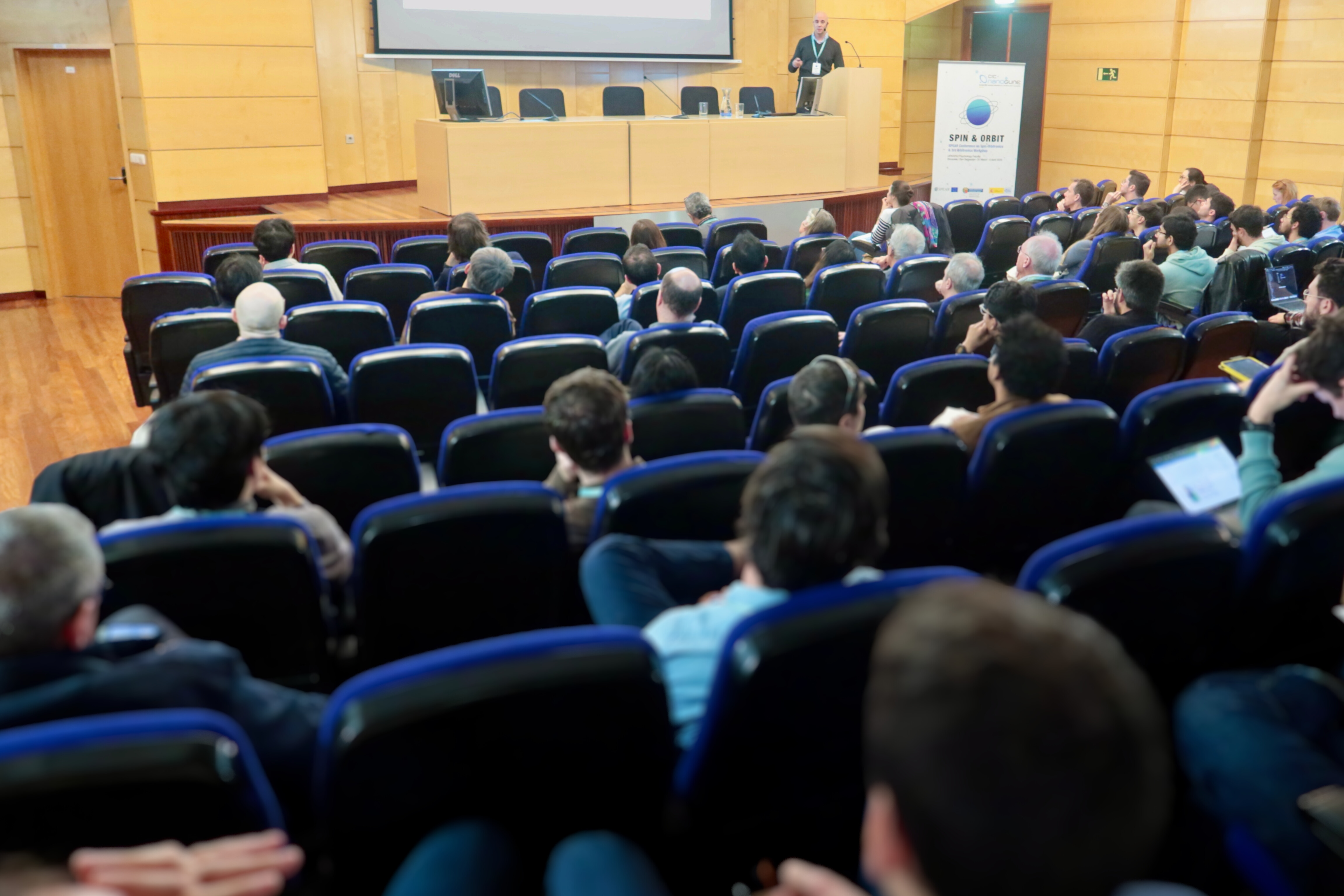Donostia, the spintronics and orbitronics capital
The Spin & Orbit conference, organized by CIC nanoGUNE, is bringing together the scientific community to discuss future electronics. Over 100 international experts in spintronics and orbitronics are meeting in Donostia / San Sebastian this week in their quest to develop revolutionary technologies for faster and more efficient information processing and storage.
Donostia has become the epicenter of research in spintronics and orbitronics this week with the celebration of Spin & Orbit at the Gipuzkoa Campus of the University of the Basque Country, a conference that brings together world experts in these innovative fields of physics, crucial for the development of the electronics of the future.
The event combines the final conference of the European project SPEAR with the third edition of the Orbitronics Workshop, and its program includes renowned scientists from Europe, Korea, Japan, the USA, Brazil and China. Among these is Nobel Laureate in Physics Albert Fert, one of the most influential figures in the field of spintronics.
In an increasingly digitized world, access to information, entertainment and communication depends more and more on digital technologies. Every day we generate 300 million terabytes of data, driving unprecedented growth in energy consumption. The information and communications sector is estimated to account for 20% of global electricity consumption by 2030. Faced with this challenge, the European Union has commited to funding projects that combine digital innovation with sustainability. SPEAR is one such project, and aims to develop more efficient solutions for data storage and processing, thus contributing toward a greener digital transition.
SPEAR is exploring how to improve current technologies and develop new approaches in computing and storage. Right now, computing and storage depend on the electron’s charge, but this technology has reached an extreme level of miniaturization. Further progress requires a paradigm shift: the use of the electron’s spin (spintronics). This quantum property allows data to be stored more efficiently without requiring a continuous supply of energy, which opens the door to faster and more sustainable devices.
 The Spin & Orbit conference will provide a platform for researchers from the European project SPEAR, which comes to an end this year, and for prominent guest speakers to share the latest advances in the field. The event will also be hosting the third Workshop on Orbitronics, an emerging discipline that studies the orbital angular momentum of electrons and promises to revolutionize the energy efficiency and speed of electronic devices. This workshop will foster the exchange of ideas and progress in a technology that will shape the future.
The Spin & Orbit conference will provide a platform for researchers from the European project SPEAR, which comes to an end this year, and for prominent guest speakers to share the latest advances in the field. The event will also be hosting the third Workshop on Orbitronics, an emerging discipline that studies the orbital angular momentum of electrons and promises to revolutionize the energy efficiency and speed of electronic devices. This workshop will foster the exchange of ideas and progress in a technology that will shape the future.
“This conference is an ideal opportunity to put the local scientific community on a par with the leading experts in this field and to discuss the latest advances in the electronics of the future,” explained Fèlix Casanova, Ikerbasque Research Professor in nanoGUNE’s Nanodevices group, coordinator of the SPEAR project and member of the organizing committee.
